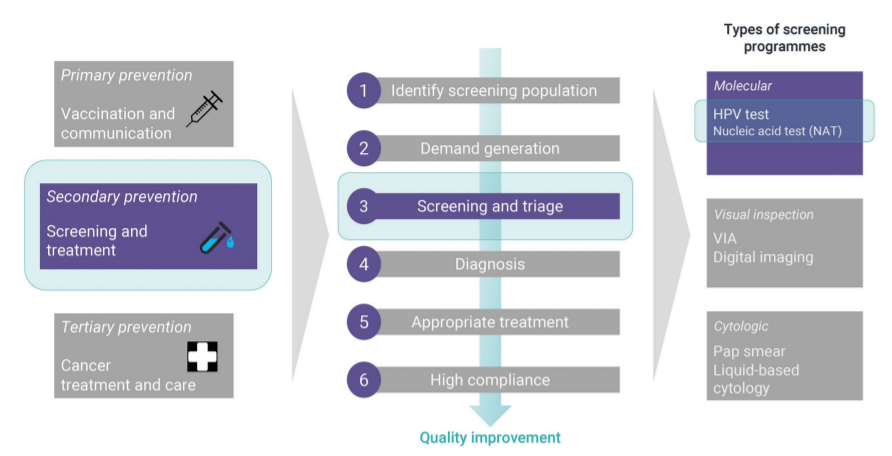Cervical Cancer Prevention Week

Cervical Cancer Prevention Week: Raising awareness and working towards cervical cancer elimination
"With a comprehensive approach to prevent, screen and treat, cervical cancer can be eliminated as a public health problem within a generation." WHO Cervical Cancer Elimination Initiative.
MedShr is building a global network to address and provide education to healthcare professionals in developing nations. Cervical Cancer is one a topic of concern because it is a preventable and curable disease - yet it kills over 300,000 people every year [1]. Of those deaths, 90% happen in developing nations. Screening and vaccination are at the core of the prevention and elimination strategies drafted by the World Health Organisation. MedShr is here to provide education and a platform for doctors and HCP to discuss their local approaches to preventing cervical cancer.
Cervical Cancer Elimination Initiative
In 2018, the WHO released a global initiative to eliminate cervical cancer. It is based on two pillars: screening and vaccination. A study has found that worldwide vaccination against HPV types 16 and 18, with cross vaccination of HPV types 31, 33 and 45 could prevent around 8.7 million cases, out of the 11.6 million otherwise [2]. The most cost-effective strategy is to vaccinate girls aged 9 to 14 years, with two doses. A second strategy should be the vaccination of boys around the same age and women over 18, but that increases the cost and has to happen in higher numbers. [3]
Screening is also pivotal to prevent cervical cancer. They allow HPV infections, which are asymptomatic, to be detected in early stages which eliminates the need for costly and complicated cancer treatment. Implementation of a HPV testing system is more complex than for other infectious diseases. A positive result does not mean the patient already has cervical cancer, but requires further testing and compliance. Screening programs also need to take into account social barriers that stop women taking the test [4].
To achieve cervical cancer elimination, the WHO goals are having 90% of girls fully vaccinated by the age of 15, 70% of women screened with a high-performance test by the age of 35 and again at 45, and 90% of women with pre-cancer and cancer being treated and managed. Every country should reach the target by 2030. If the targets are met, over 62 million could be saved by 2120.
Improving screening rates
Implementing cytology-based tests are costly and difficult to implement in developing nations. Currently there is lower coverage than necessary to reach WHO targets. An alternative is the visual inspection of the cervix with acetic acid, followed by treatment, where HPV testing is not available. It's also necessary to understand and adapt strategies according to local cultural norms. Approaches such as self-sampling delivered by community health workers have increased cervical cancer screening [4].
In the UK women and people with a cervix, aged between 25 and 49 years, are invited by the NHS to take a smear test every 3 years, with the interval growing to 5 years for people aged 50 to 64. The WHO recommends testing women at the age of 35 year and again at the age of 45, when resources are sparse. If you are a healthcare professional, this is a great time to remind your patients about their cervical screening and the importance of attending when invited.
Through working together and sharing experiences as healthcare professionals on MedShr, we have an opportunity learn from each other how best to promote screening, vaccination and best management for our patients and reduce the burden of cervical cancer worldwide.

For free access to the Oncology Global Education Network, doctors and other health professionals are encouraged to sign up here.
MedShr also offers free, fast-tracked, registration for medical schools, hospitals and medical societies. Please contact globalhealth@medshr.net to make arrangements

Loading Author...
Sign in or Register to comment